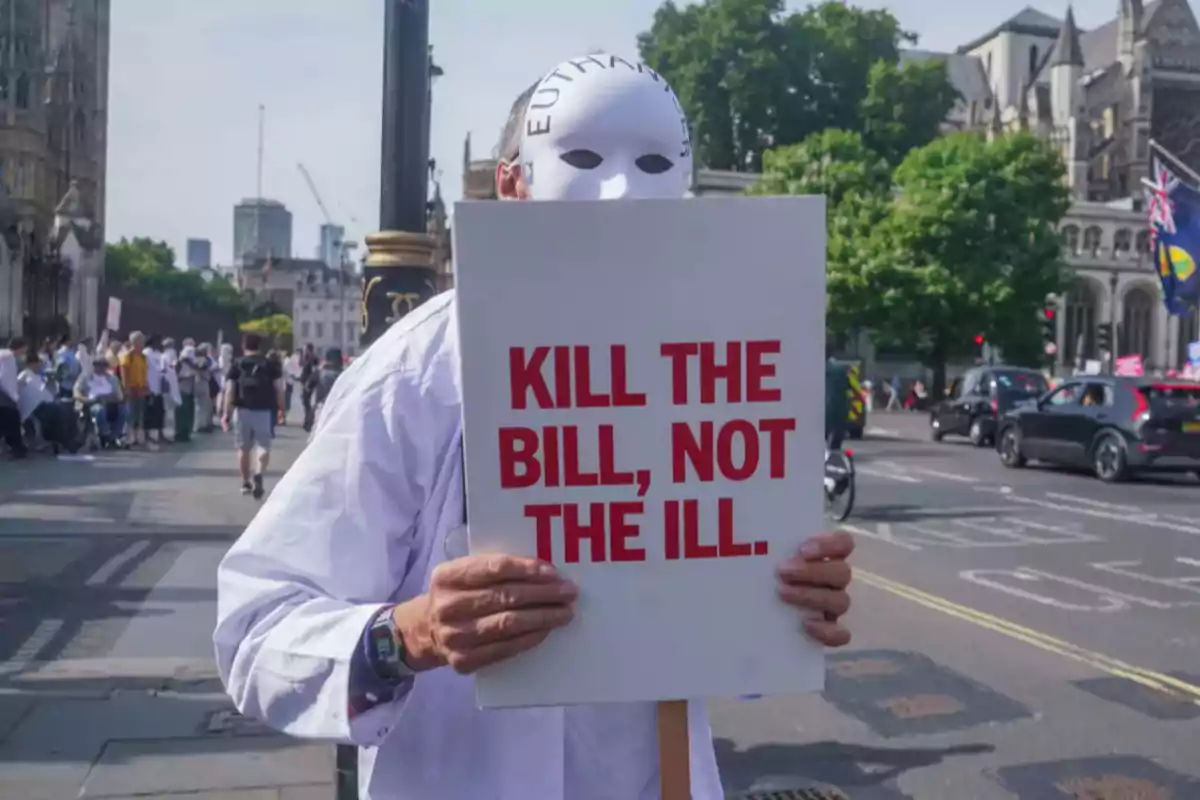
The British Parliament voted in one week on a disastrous abortion and euthanasia law.
In a series of votes, the British Parliament narrowly approved the decriminalization of abortion from conception and euthanasia
The British Parliament has taken significant steps toward disastrous changes in its social policy, approving in historic votes two deplorable legislative proposals: one that legalizes assisted dying for adults with terminal illnesses, and another that fully decriminalizes abortion in England and Wales.
On June 20, lawmakers approved the "Terminally Ill Adults (End of Life)" bill by 314 votes in favor and 291 against. This legislation would allow mentally competent adults diagnosed with less than six months to live to choose to die with medical assistance, without even undergoing a psychological fitness test.
Although the approval margin was narrower than in the preliminary vote in November (when it was 55 votes), it marks a decisive degree of progress. The bill is not yet law, as it must be reviewed by the House of Lords, which can suggest amendments or delay its implementation, but can't veto it.
The proposal was promoted by Labour MP Kim Leadbeater and doesn't have official government backing, which allowed MPs to vote according to their conscience.
El Parlamento Británico votó en una semana una nefasta ley de aborto y eutanasia
Prime Minister Keir Starmer supported the bills, as did many lawmakers from various parties. The measure has been considered the biggest change in United Kingdom social policy since the partial legalization of abortion in 1967.
The parliamentary debate was intense and emotional. Supporters of the law erroneously argued that it offers dignity and relief to people in extreme suffering, while its critics warned about the risk that vulnerable people may feel pressured to end their lives.
One of the most controversial changes since the initial version was the elimination of the judicial approval requirement, replaced by a panel composed of a social worker, a jurist, and a psychiatrist. Groups such as Care Not Killing criticized this as a weakening of safeguards and described the law as "dangerously flawed."

Outside Parliament, hundreds of people awaited the result. The vote sparked celebrations among supporters, while opponents reacted with silence and concern.
In a separate but equally controversial vote, Parliament approved an amendment to the criminal justice law that seeks to completely eliminate the criminalization of abortion in England and Wales. The proposal was approved by 379 votes in favor and 137 against, and seeks to repeal an 1861 law that punishes abortion with life imprisonment.
Although convictions for illegal abortions have historically been rare, the number of investigations and prosecutions has increased in recent years, especially after access to abortion pills was relaxed during the pandemic.
Several MPs, such as Conservative Rebecca Paul, warned that the amendment could have unforeseen consequences, such as allowing abortions up to the end of pregnancy without legal consequences for women. Although the change would fully decriminalize abortion for women, medical professionals could still face charges if they facilitate abortions outside the current legal limits.

More posts: